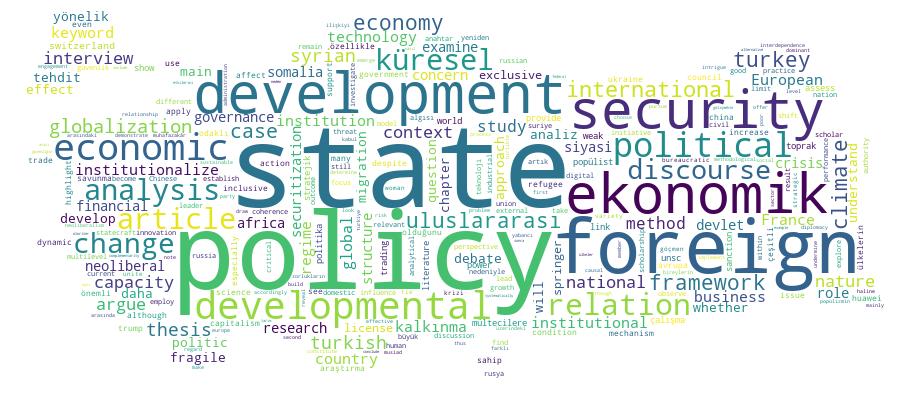Karaoğuz, Hüseyin Emrah
Loading...

Profile URL
Name Variants
Karaoğuz, H. E.
K., Hüseyin Emrah
Karaoguz,H.E.
K., Huseyin Emrah
H. Karaoğuz
K.,Huseyin Emrah
KARAOĞUZ, Hüseyin Emrah
HÜSEYIN EMRAH KARAOĞUZ
Karaoǧuz E.
Hüseyin Emrah Karaoğuz
Karaoguz,Huseyin Emrah
KARAOĞUZ, HÜSEYIN EMRAH
Karaoğuz, Hüseyin Emrah
Hüseyin Emrah KARAOĞUZ
Karaoğuz H.
Karaoguz, Huseyin Emrah
H. E. Karaoğuz
Karaoguz H.
Karaoğuz,H.E.
Huseyin Emrah, Karaoguz
Karaoğuz, HÜSEYIN EMRAH
Karaoğuz, H.
Emrah Karaoğuz, Hüseyin
Karaoguz, H.E.
Karaoguz, H. Emrah
Karaoğuz, Hüseyin Emrah
K., Hüseyin Emrah
Karaoguz,H.E.
K., Huseyin Emrah
H. Karaoğuz
K.,Huseyin Emrah
KARAOĞUZ, Hüseyin Emrah
HÜSEYIN EMRAH KARAOĞUZ
Karaoǧuz E.
Hüseyin Emrah Karaoğuz
Karaoguz,Huseyin Emrah
KARAOĞUZ, HÜSEYIN EMRAH
Karaoğuz, Hüseyin Emrah
Hüseyin Emrah KARAOĞUZ
Karaoğuz H.
Karaoguz, Huseyin Emrah
H. E. Karaoğuz
Karaoguz H.
Karaoğuz,H.E.
Huseyin Emrah, Karaoguz
Karaoğuz, HÜSEYIN EMRAH
Karaoğuz, H.
Emrah Karaoğuz, Hüseyin
Karaoguz, H.E.
Karaoguz, H. Emrah
Karaoğuz, Hüseyin Emrah
Job Title
Doç. Dr.
Email Address
Main Affiliation
Political Science and International Relations
Status
Current Staff
Website
ORCID ID
Scopus Author ID
Turkish CoHE Profile ID
Google Scholar ID
WoS Researcher ID
Sustainable Development Goals
15
LIFE ON LAND

0
Research Products
16
PEACE, JUSTICE AND STRONG INSTITUTIONS

2
Research Products
14
LIFE BELOW WATER

0
Research Products
6
CLEAN WATER AND SANITATION

0
Research Products
3
GOOD HEALTH AND WELL-BEING

0
Research Products
17
PARTNERSHIPS FOR THE GOALS

10
Research Products
4
QUALITY EDUCATION

0
Research Products
2
ZERO HUNGER

0
Research Products
10
REDUCED INEQUALITIES

9
Research Products
7
AFFORDABLE AND CLEAN ENERGY

0
Research Products
13
CLIMATE ACTION

0
Research Products
1
NO POVERTY

5
Research Products
9
INDUSTRY, INNOVATION AND INFRASTRUCTURE

3
Research Products
12
RESPONSIBLE CONSUMPTION AND PRODUCTION

0
Research Products
8
DECENT WORK AND ECONOMIC GROWTH

10
Research Products
11
SUSTAINABLE CITIES AND COMMUNITIES

0
Research Products
5
GENDER EQUALITY

2
Research Products

Documents
19
Citations
69
h-index
5

Documents
0
Citations
0

Scholarly Output
34
Articles
10
Views / Downloads
261/2289
Supervised MSc Theses
11
Supervised PhD Theses
2
WoS Citation Count
42
Scopus Citation Count
62
WoS h-index
4
Scopus h-index
5
Patents
0
Projects
0
WoS Citations per Publication
1.24
Scopus Citations per Publication
1.82
Open Access Source
12
Supervised Theses
13
Google Analytics Visitor Traffic
| Journal | Count |
|---|---|
| International Political Economy Series | 7 |
| Globalizations | 2 |
| Southeast European and Black Sea Studies | 2 |
| Journal of Balkan and Near Eastern Studies | 1 |
| Panoeconomicus | 1 |
Current Page: 1 / 3
Competency Cloud


